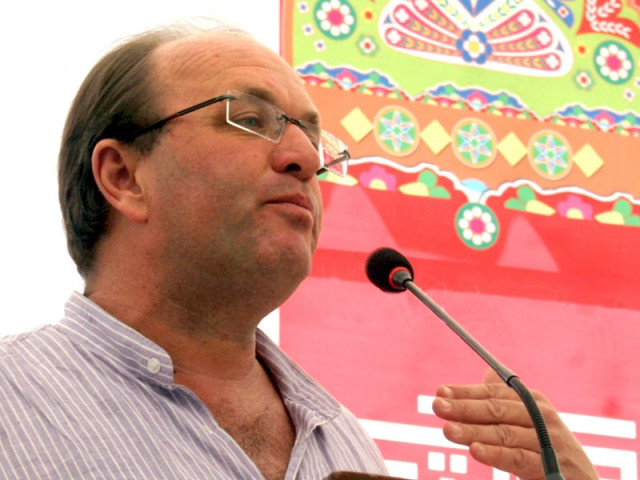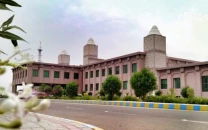For Dalrymple, the key to Delhi lay in Karachi
The lack of narrative history, and his love for the city, led the historian to undertake White Mughals.

For the burly Scotsman, the route to imperial Delhi went via Karachi.
William Dalrymple, therefore, was squarely on home turf at the literature festival in Karachi, a city he had visited earlier while writing his second book, and the first one based on Delhi, the City of Djinns.
Besides the stories he learnt from Karachi’s migrants and the Delhiwallas during that visit, Dalrymple said he had the privilege of seeing former premier Benazir Bhutto’s Mills and Boon collection at her Clifton residence.
Coincidentally, moderator and author Kamila Shamsie added for good measure, the other person Dalrymple met on that visit to Karachi was Imran Khan.
The audience’s laughter was visibly measured.
Humanising history
Post-1947 Delhi was a muddled paradox, said Dalrymple.
It was a new population living in an ancient city which held centre-stage, for over a millennium, under the Sultanates, the Mughals and the British.
Delhi had it all – the history, the ruins, the monuments – but it lacked an effective story teller who could communicate the significance of the ruins to the residents who trudged past them every day.
That is when Dalrymple walked in.
When you write an account of the Tudors, or Catherine the Great, or the Second World War, it’s one of thousands of well-composed narratives, he said. But that was not the case with the Mughals.
The lack of narrative history, and his love for the city, led Dalrymple to compose the first social history set in the northern Indian empire, White Mughals.
The love story of the British Kirkpatrick and Indian Khairun Nisa chronicled the interracial mingling in late 18th and early 19th century Delhi.
Dalrymple did not, however, just narrate history – he recreated it using letters, dispatches, diaries and notes from the era, all of which took extensive research.
What followed was The Last Mughal, a gripping account of the fall of the Mughal Empire and the 1857 Sepoy Mutiny, or the alternatively termed War of Independence.
Why the interest in the empire’s decline, the moderator asked.
Possibly because my family sold our 300-year-old house right before my birth and I saw the twilight of the Scottish aristocracy, Dalrymple suggested.
Published in The Express Tribune, February 12th, 2012.

















COMMENTS
Comments are moderated and generally will be posted if they are on-topic and not abusive.
For more information, please see our Comments FAQ